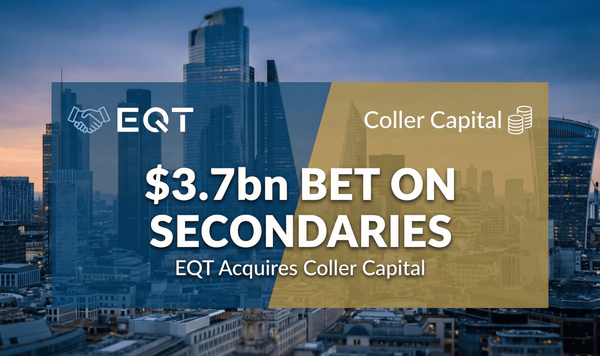Global Investing Strategies: Lessons from KKR’s International Expansion
In today’s interconnected financial world, limiting investments to domestic markets can restrict both opportunity and growth.
While local markets provide familiarity, the most rewarding prospects—and the strongest risk management strategies—often lie across international borders.
Global investing allows individuals and institutions to diversify, access high-growth regions, and identify opportunities unavailable at home.
One of the clearest examples of success through this global vision is KKR (Kohlberg Kravis Roberts & Co.), a leading global investment firm whose strategies demonstrate the true power of thinking internationally.
Why Global Investing Matters: Key Advantages
Expanding beyond domestic borders opens investors to a range of critical advantages:
1. Diversification of Risk
Domestic portfolios are vulnerable to localized political, economic, or social disruptions. A recession, regulatory change, or natural disaster can severely impact concentrated investments. Spreading capital across multiple geographies cushions against such shocks.
2. Access to High-Growth Markets
Emerging markets often boast higher GDP growth, expanding middle classes, and rapidly shifting consumption patterns. These regions can deliver stronger returns compared to more mature economies.
3. Innovation and Untapped Opportunities
Different regions specialize in industries or technological advances. A global lens enables investors to identify groundbreaking innovations, niche markets, or scalable business models still underdeveloped in their home markets.
4. Currency Diversification
Holding assets across currencies helps hedge against single-currency volatility, adding another layer of risk management.
5. Access to Global Talent
International investments allow exposure to diverse management teams and local expertise - key factors in long-term success.
KKR’s Global Strategy: A Case Study in International Investment
As one of the world’s most influential investment firms, KKR demonstrates how a global perspective drives growth. Their approach goes far beyond financial engineering - it is rooted in global opportunity.
Geographic Diversification
KKR maintains a strong presence in North America, Europe, Asia, and beyond. Their teams adapt strategies to local macroeconomic conditions, consumer trends, and regulatory frameworks.
Sector-Agnostic but Global-Minded
KKR identifies global trends—such as digital infrastructure—and invests worldwide, rather than focusing solely on a single region.
Local Expertise with a Global Network
Operating through a hub-and-spoke model, KKR combines central oversight with strong local teams who bring cultural fluency, networks, and insights vital to deal-making and portfolio management.
Capitalizing on Dislocation
Global crises and disruptions often create unique opportunities. With its international reach, KKR is positioned to act quickly where markets misprice risk.
Portfolio Expansion
Beyond investing capital, KKR actively helps its portfolio companies expand into new international markets, unlocking additional value.
How KKR’s IPO Fueled Global Growth
Going public was a pivotal moment for KKR, enabling broader global expansion and strategic flexibility.
Permanent Capital
Listing in Amsterdam (2007) and later the NYSE (2010) gave KKR permanent capital, enabling longer investment horizons beyond the traditional 3–7 years.
Strategic Flexibility
Permanent capital allowed KKR to seed new strategies in real estate, infrastructure, credit, and growth equity—significantly broadening their asset classes.
Enhanced Fundraising
As a public entity, KKR gained credibility with institutional investors like pension funds and sovereign wealth funds, boosting Assets Under Management (AUM).
Ability to Pursue Larger Deals
Public capital enabled KKR to take on larger, more complex transactions, strengthening its position as a diversified global alternative asset manager.
Challenges of Global Investing (and How to Overcome Them)
Despite its rewards, global investing comes with complexities:
- Regulatory and Legal Differences – Varying tax and compliance regimes require expertise.
- Cultural Nuances – Local business practices and consumer behavior can make or break deals.
- Demographics and Socio-Economics – Population shifts, aging trends, or income inequality affect markets differently.
- Currency Volatility – While diversification helps, FX risk requires active management.
- Information Gaps – Access to reliable local market data can be difficult in certain regions.
- Operational Complexity – Time zones, logistics, and differing business standards add management challenges.
- Geopolitical Risks – Policy shifts, elections, or conflicts can destabilize markets.
Investors must prepare by building local partnerships, leveraging data sources, and maintaining agile strategies.
FAQs on Global Investing
Q: What are the main benefits of global investing?
A: Diversification, access to high-growth markets, currency hedging, and exposure to innovation.
Q: How does KKR’s global strategy stand out?
A: KKR leverages a global-local hybrid model: central oversight paired with strong local expertise, giving them a unique advantage in scaling investments worldwide.
Q: Is global investing riskier than domestic investing?
A: It carries added complexities—such as currency risk and geopolitical uncertainty—but when managed effectively, it often results in more balanced long-term growth.
Conclusion: The Future of Global Investment Strategies
KKR’s sustained success illustrates a core truth: the investment world is no longer confined to national borders.
For modern investors, embracing a global investing mindset is essential for maximizing returns, reducing concentrated risk, and accessing innovative opportunities worldwide.
In a financial landscape shaped by cross-border flows, global diversification is not just a competitive advantage, it is a necessity.

